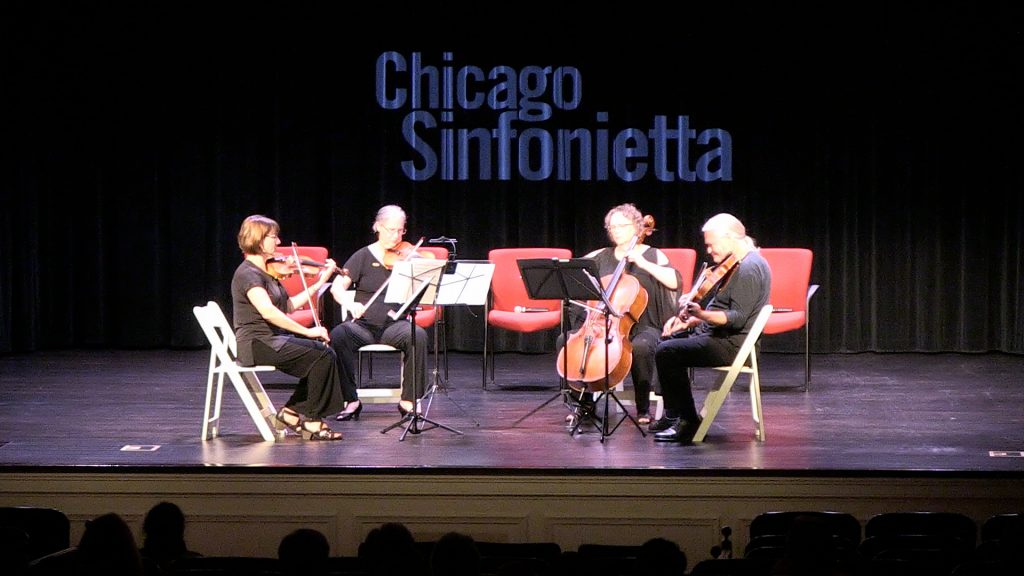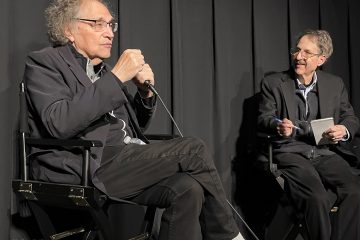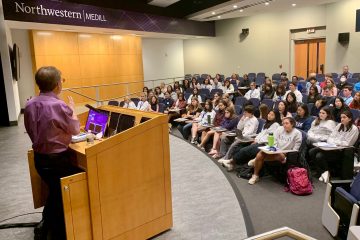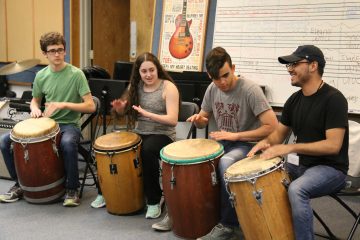‘For the Left Hand’ and the subject of race
Our culture today emphasizes the “lived experience,” meaning stories should be told by those who have lived them.
So when “For the Left Hand” sold out the Chicago History Museum on Aug. 18, Howard asked the post-screening panel about white filmmakers telling the story of Norman Malone, a Black man.
How did race figure into the filmmakers’ thinking?
“Initially, I thought that’s going to somehow be a part of the film,” said Gordon Quinn, who directed the documentary with Leslie Simmer.
“But when we met Norman, and as we dug into the story,” priorities changed.
“The way I perceive your identity,” Gordon continued, speaking directly to Norman, “Music, that’s in the foreground. And then you were an educator, you were a teacher. … And then there’s your family. And then there’s race.”
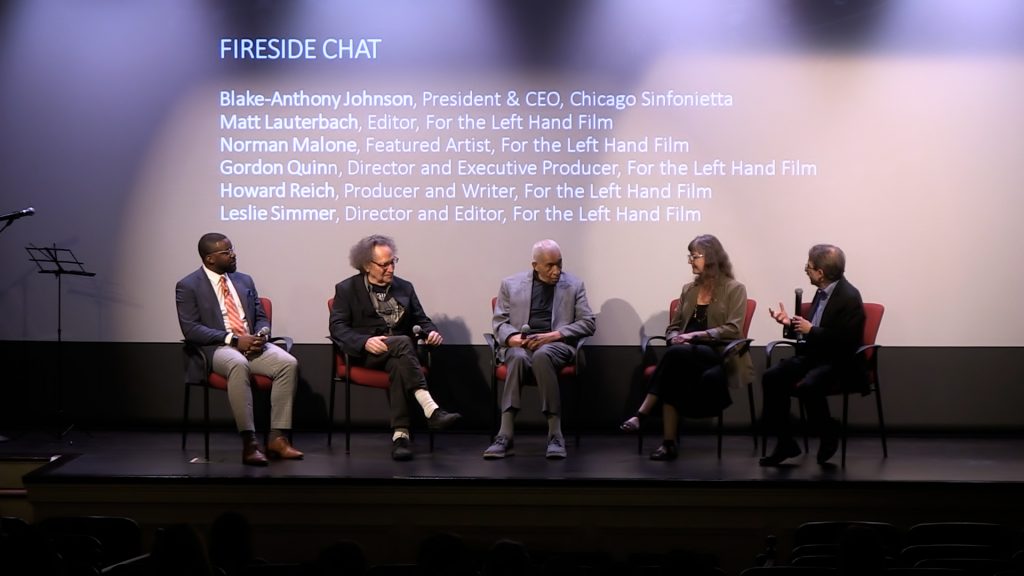
Race, in other words, does not appear to rank high in Norman’s perception of himself. Therefore, the film – in which Norman tells his story – needed to reflect that.
“People have lots of different identities,” added Gordon. “You don’t want to force people into making choices [in a film] that aren’t the choices they feel.”
Still, there’s the issue of who gets to do the storytelling.
“It’s an exciting time for the field of documentary that we have to confront those questions, and we have to think it through,” said Gordon.
“It doesn’t mean that every film about every African American has to be done by an African American. It doesn’t mean that every film [about] white people can’t be done by African Americans. But it does mean that question is important, and you’ve got to ask it and confront it and think about it.”
To which Norman responded, “I’m happy you did it.”
Watch the full performance and panel discussion/Q&A
During the Q-and-A portion of the evening, which was presented by the Chicago Sinfonietta in conjunction with the History Museum, an African American gentleman in the audience objected.
“No one can tell our story like us,” he said. “In terms of the experience, the lived experience … it’s kind of difficult if you haven’t been there, done that, have the mug, the hat and the T-shirt.”
Norman was the first to respond.
“But they offered it to me,” said Norman. “No one else did.”
A woman in the audience joined the discourse.
“The story is told by him, in his voice, of his life,” she said, referring to Norman. “And I don’t think this was a story about necessarily the struggle of being a Black man. This was the story of being a man with resilience in his heart and his soul.”
Leslie added that it’s vital that we continue to wrestle with these issues.
“I do think it’s really important to have the conversation about who makes the films,” she said. “And I do think that we need to keep having that conversation. So it’s good that we’re opening that up.
“And thank you for expressing your opinions about that,” she said to the audience members who had spoken up. “And thank all of you for being able to discuss it, to be talking about it. Now is a really, really important time.”
Equally crucial, as the film makes clear, is the importance of opening up music itself to everyone.
No musical institution in the United States has done more for that cause than the Chicago Sinfonietta, which conductor Paul Freeman founded in 1987 to make classical music more accessible to performers, composers and audiences of color.
Said Sinfonietta president and CEO Blake-Anthony Johnson during the panel discussion, “This being our 35th anniversary year – believe it or not – we’re really looking forward to not just remaining this leader in diversity, equity and inclusion, accessibility and belonging, but we’re really trying to show off how we’re all better off for it.
“During the global pandemic, we did a lot of virtual programming, which was fantastic, and we loved that. We had 40 countries participating. But one of the things we also realized, not just here in Chicago but globally, was there is a huge digital divide.
“We’re always thinking of how can we get more people who have not had this chance to engage with music? I always tell people: Music to me was a ticket to the world. I’m a cellist by training and career. And it’s one of the best gifts that you can give someone. At least for the Sinfonietta, we’re trying to keep reimagining and keep rewriting how many people we can give that gift to.”
“For the Left Hand” shares that goal.
